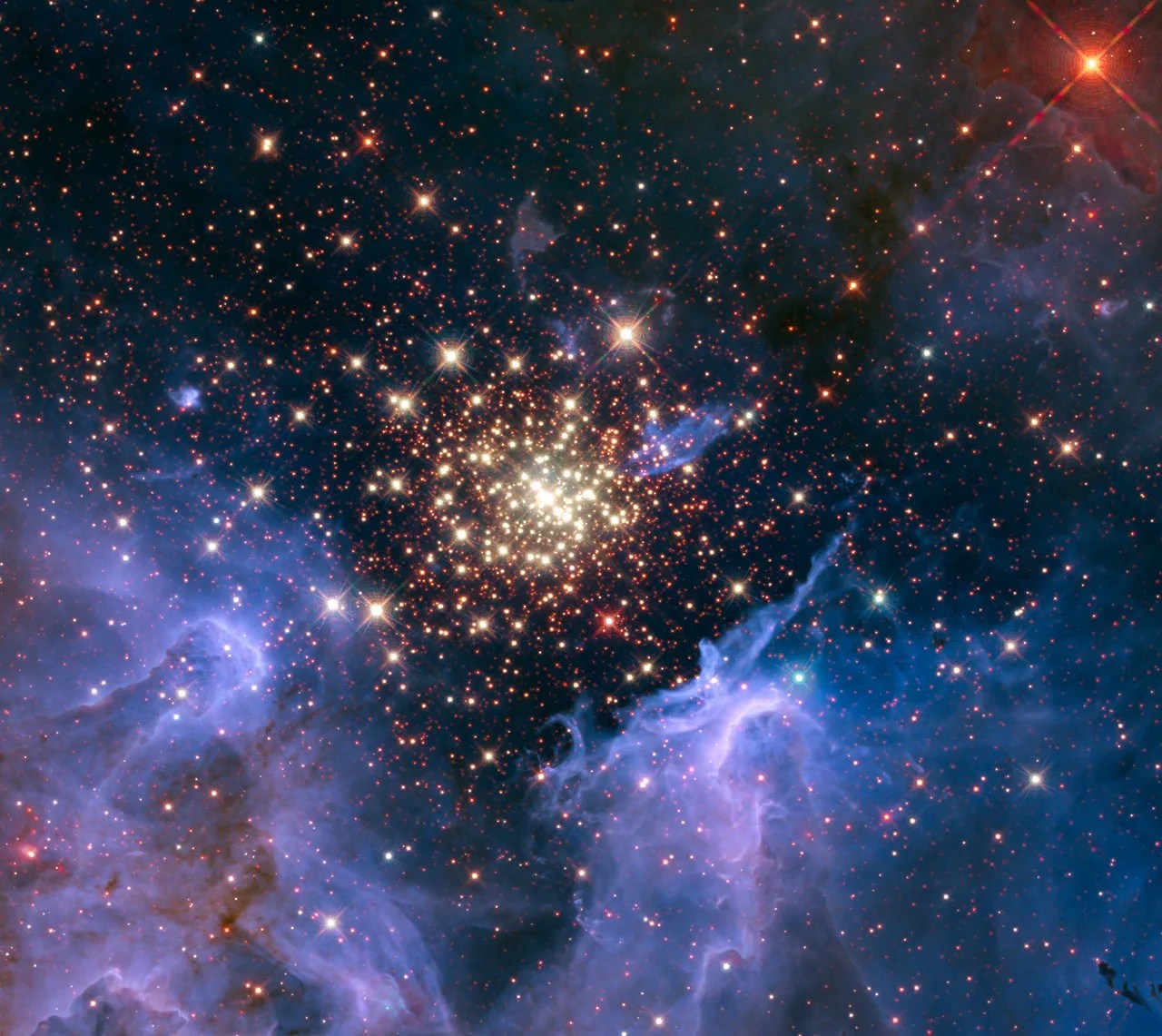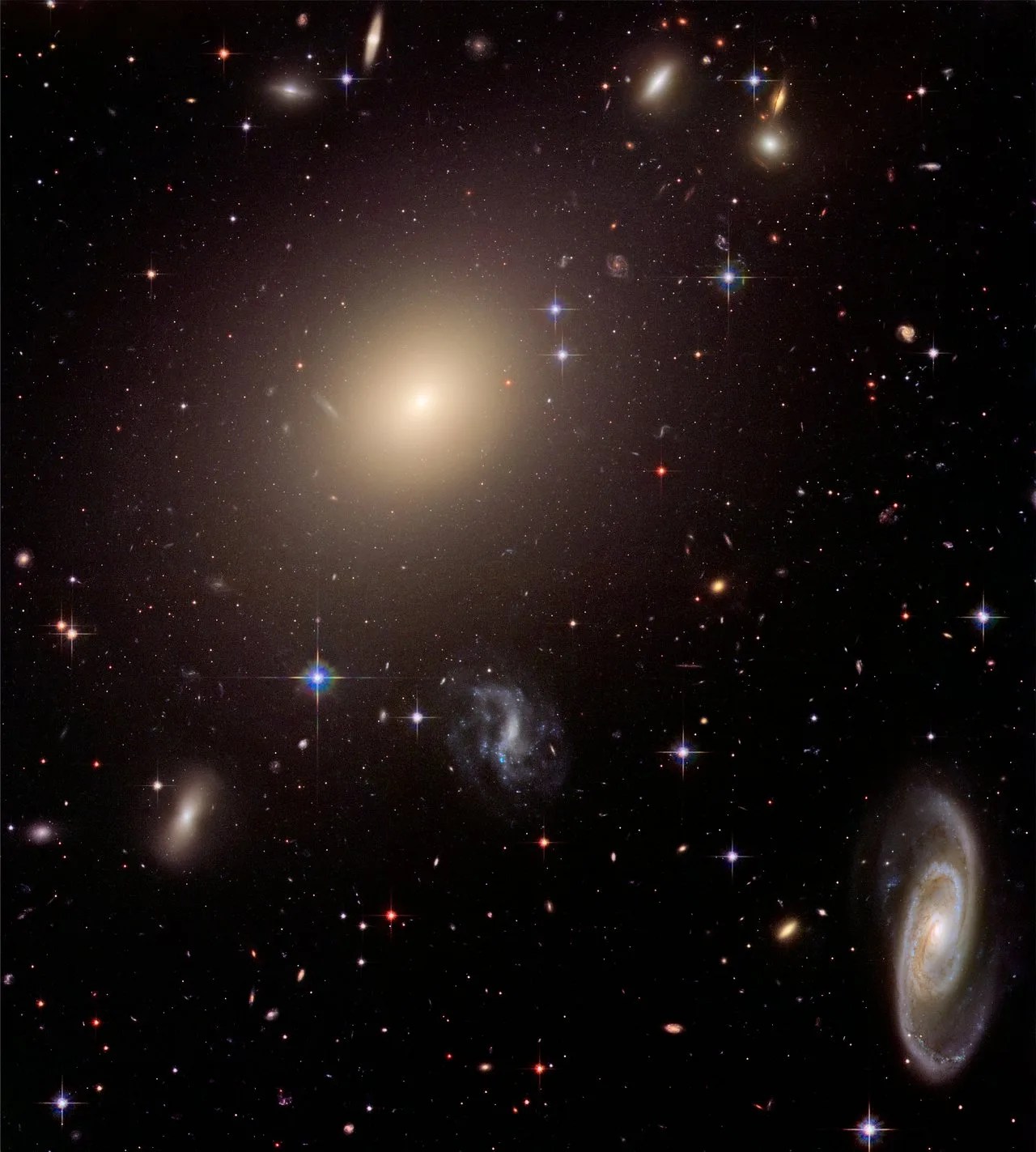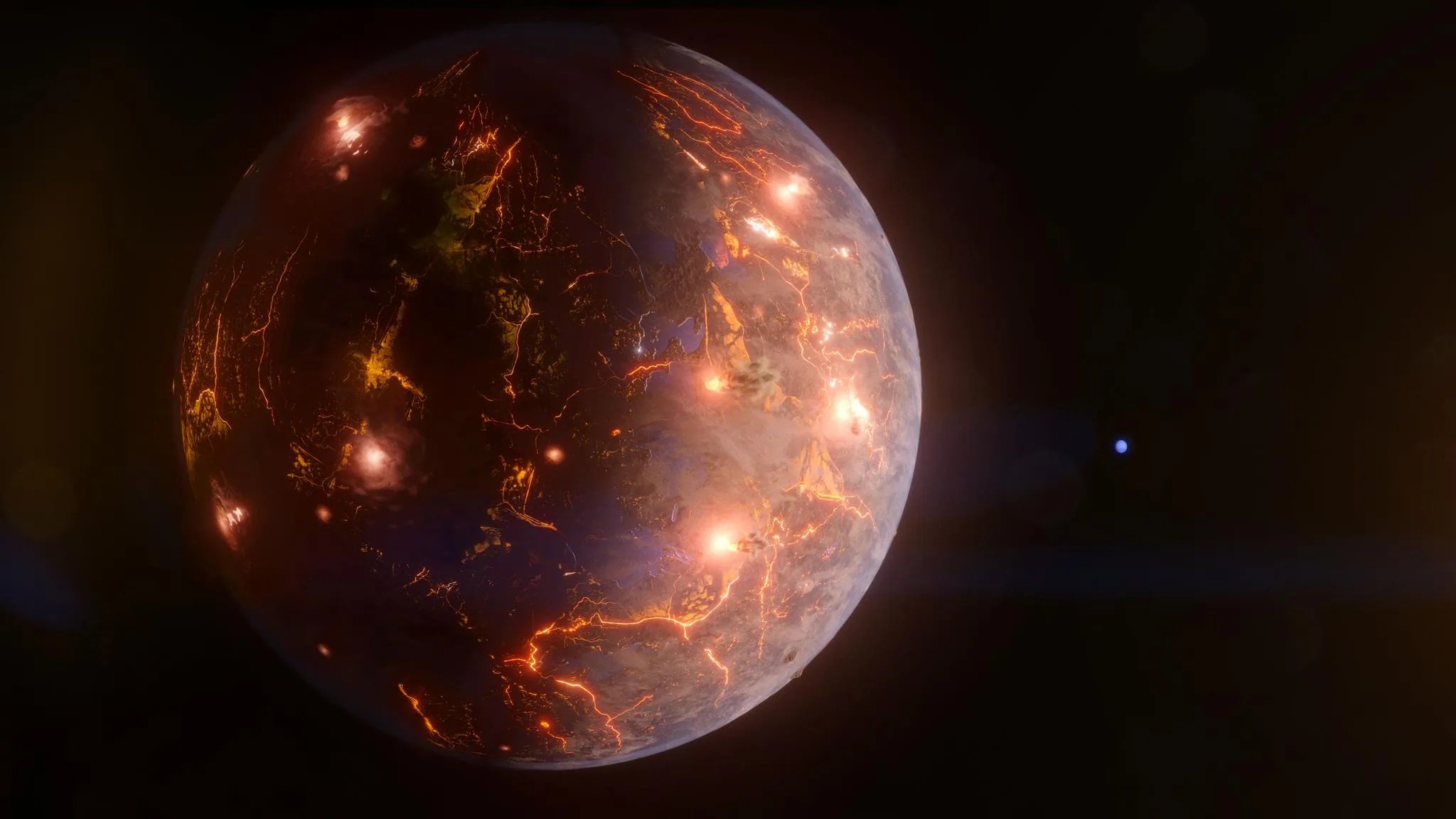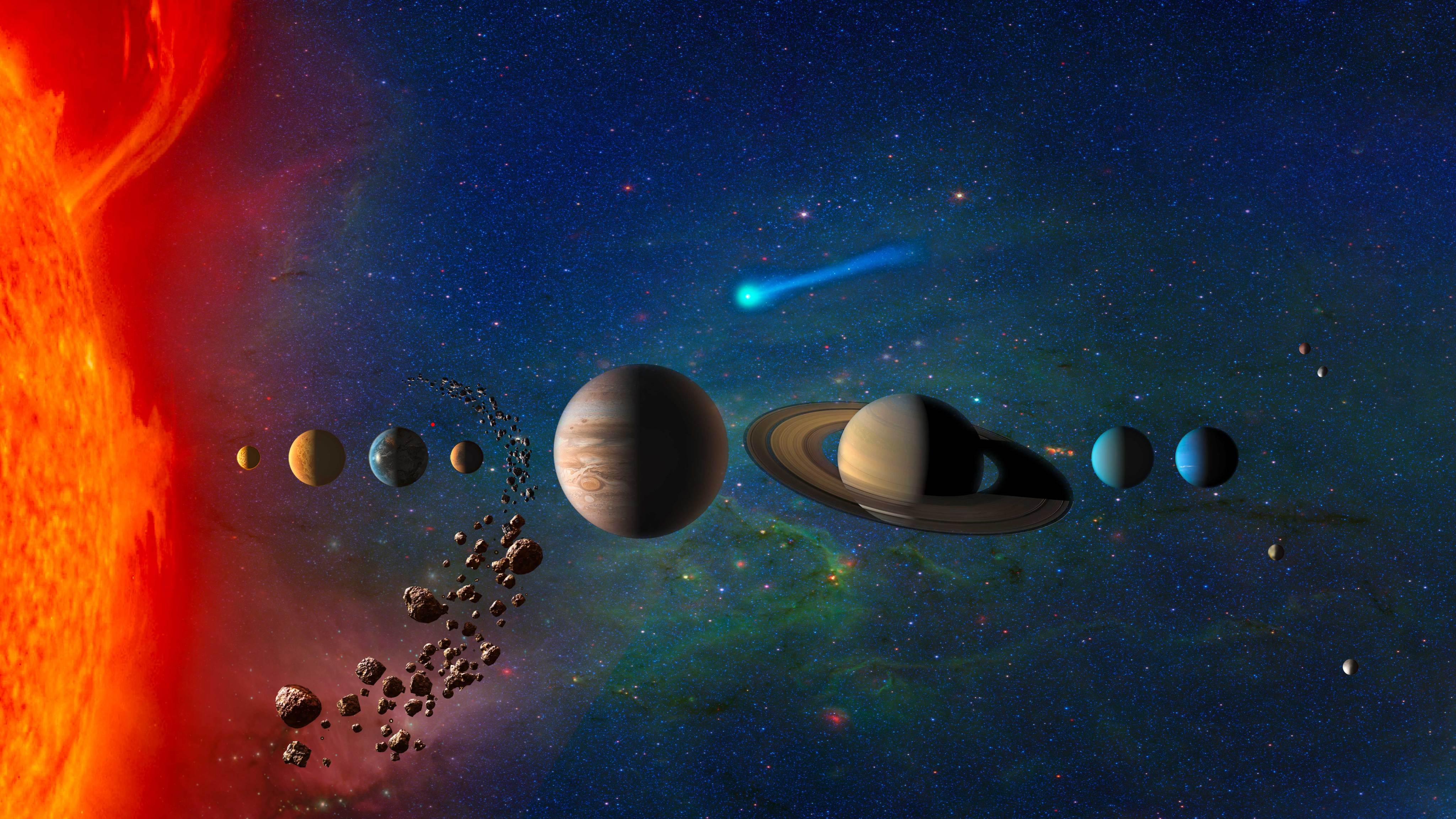3 min read
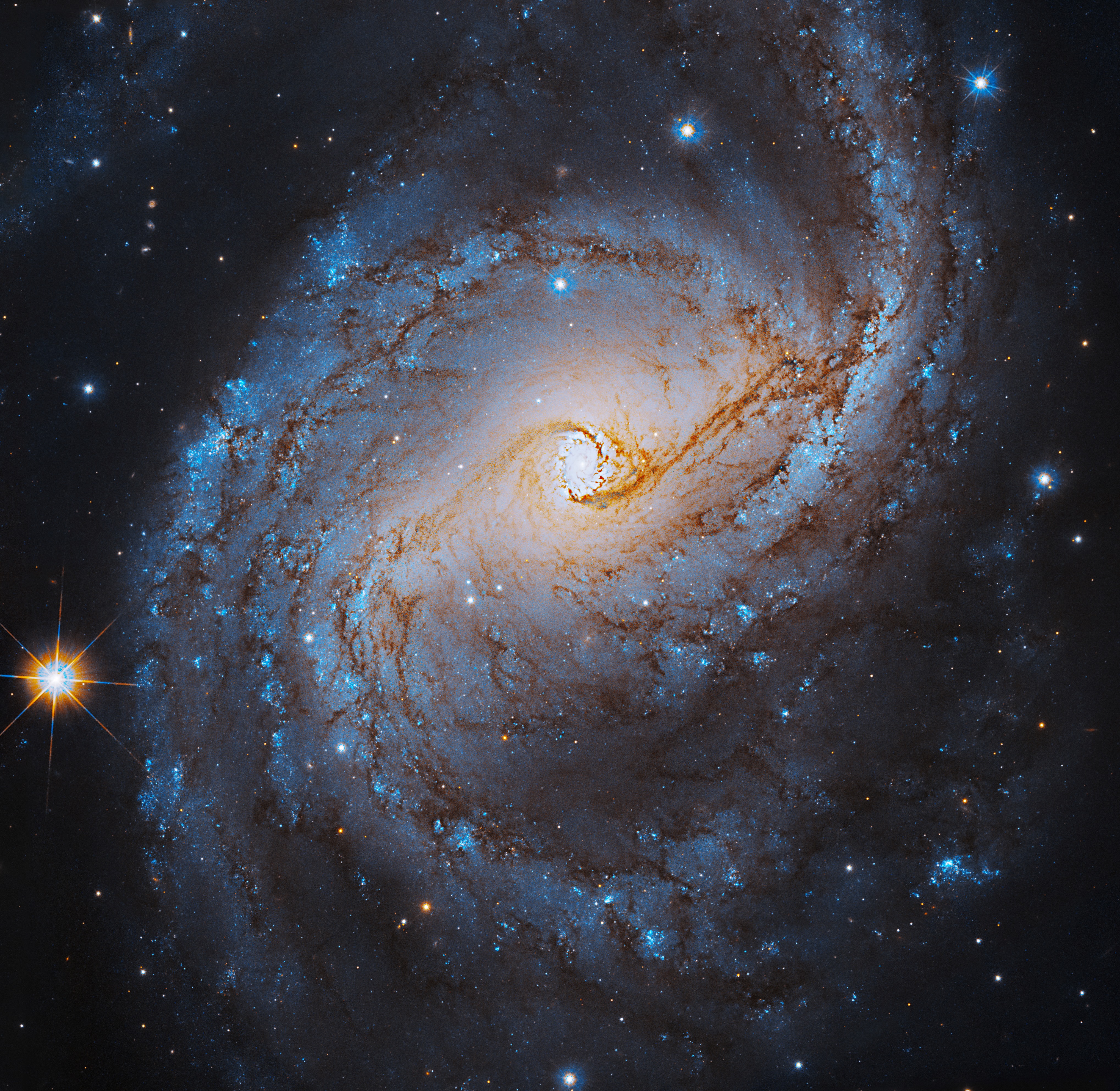
Hubble is sharing a brand new galaxy image every day through October 7, 2023!
Visit our website daily, or follow along on X, Facebook, and Instagram.
Bright blue spiral arms twist around the bright-white center of this starry galaxy. This new NASA Hubble Space Telescope image features NGC 6951, an intermediate spiral galaxy 78 million light-years away in the Cepheus constellation. Discovered independently by French astronomer Jerome Coggia in 1877 and American astronomer Lewis Swift in 1878, NGC 6951 intrigues scientists with its stellar history. The galaxy had its highest rates of star formation about 800 million years ago, then sat quietly for 300 million years before beginning to birth stars again. The average age of a star cluster, or gravitationally-bound group of stars, in this galaxy is 200 to 300 million years old, though some are as old as one billion years. Turbulent regions of gas, shown in dark red, surround the bright blue pinpricks that are star clusters.
Astronomers often classify NGC 6951 as a Type II Seyfert galaxy, a type of active galaxy that emits large amounts of infrared radiation and has slow-moving gaseous matter near its center. Some astronomers classify NGC 6951 as a low-ionization nuclear emission-line region (LINER) galaxy, which is similar to a Type II Seyfert galaxy but with a cooler nucleus that emits weakly ionized or neutral atoms like oxygen, nitrogen, and sulfur. The whole galaxy is about 75,000 light-years across, and since it is close to the northern celestial pole, it is visible from the northern hemisphere.
At the center of NGC 6951 lies a supermassive black hole surrounded by a ring of stars, gas, and dust about 3,700 light-years across. This “circumnuclear ring” is between 1 and 1.5 billion years old and has been forming stars for most of that time. Scientists hypothesize that interstellar gas flows through the dense, starry bar of the galaxy to the circumnuclear ring, which supplies new material for star formation. Up to 40 percent of the mass in the ring comes from relatively new stars that are less than 100 million years old. Spiral lanes of dust, shown in dark orange, connect the center of the galaxy to its outer regions, contributing more material for future star formation.
Some of the stars in NGC 6951 have also experienced terrific stellar explosions known as supernovae; astronomers have counted as many as six supernovae in this galaxy in the past 25 years. Scientists continue to study NGC 6951 to better understand the environments that produce supernovae. Studying the emissions from supernovae helps astronomers understand the progenitor star, its age, luminosity, and position. This image used data from Hubble’s Wide Field Camera 3 and Advanced Camera for Surveys. The data is in both visible and infrared light.
Media Contact:
Claire Andreoli
NASA's Goddard Space Flight Center, Greenbelt, MD
claire.andreoli@nasa.gov

